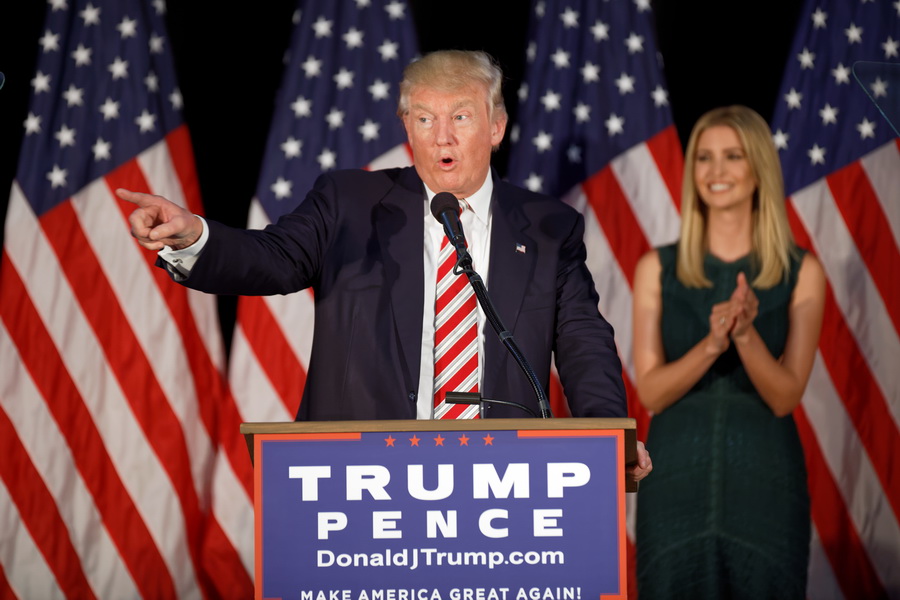From Cambodia to Zimbabwe to North Korea, the Republican nominee has cornered the authoritarian autocrat demographic.

With endorsements like these, one might ask, who needs enemies? Last week, as an enervating U.S. election race reached its final stretch, Republican nominee Donald Trump secured the support of another of the world’s leading authoritarians. Cambodian Prime Minister Hun Sen, a pugnacious former soldier who has dominated his country’s politics for over three decades, threw his support behind the real estate mogul and former reality TV host. He did it, he said, for the sake of world peace. “To be frank, I do want to see Trump win,” Hun Sen told an audience of police cadets on Nov. 3. “If Trump wins, the world can change.… Trump does business, so Trump would not want to have war.”
It’s tempting to put Hun Sen’s endorsement down to shared authoritarian traits — an expression of strongman respect. For more than half his life, the 64-year-old Hun Sen has ruled his country through a blend of force, guile, and The Apprentice-style theatrics. Like Trump, he is thin-skinned; he is also partial to rambling speeches. Neither figure has any tolerance for opposition, which both see as a sign of treason or shadowy conspiracies (“the whole system is rigged”). While Trump has threatened to arrest his Democratic opponent, Hillary Clinton, if he wins on Nov. 8, Hun Sen has effectively done it in advance. Since mid-2015, he has jailed more than 25 government critics, including two opposition lawmakers, while the main opposition leader, Sam Rainsy, has been forced into exile in France. To top it off, Hun Sen has repeatedly warned that the country will descend into civil war if his Cambodian People’s Party, or CPP, is not re-elected at the next national poll in 2018.
There’s also the magnetic attraction of Trump’s wealth. The Donald’s vulgar flaunting of the gilded and the marble not only reflects the rococo tastes of Cambodia’s own ruling elite. It also appeals to an aspect of Cambodia’s Buddhist-inflected political culture in which those with money are seen as persons of merit: rich because virtuous, virtuous because rich. Hun Sen might expect that an able and meritorious businessman like Trump would be liable to treat a wealthy counterpart with respect and “do deals” with Cambodia of the sort Washington now does with allies like Saudi Arabia or Vietnam — deals that would spare him lectures on civil rights or the treatment of workers.
Hun Sen’s endorsement of Trump, however, goes beyond superficial affinities of character or style. Indeed, an administration headed by Trump stands to produce something concrete for Hun Sen: a slackening of Washington’s position on the state of human rights and democracy in Cambodia. The Cambodian leader isn’t the only autocrat to see the upsides of a Trump presidency. In recent months, Russia’s Vladimir Putin, North Korea’s Kim Jong Un, and Zimbabwe’s Robert Mugabe have all expressed support for the Republican nominee. (So has Ashin Wirathu, a rabidly nationalist monk in Myanmar who has fanned the flames of hate against his country’s Muslim minority.) For these leaders, Trump’s appeal goes beyond issues of style to touch on something more troubling: the possibility of a sudden and dramatic reshaping of U.S. power.
One of the few consistent themes to emerge from the bag of tricks of emotional appeals and knee-jerk nativism that comprises the Trump foreign-policy platform is the prospect of a broad American retreat from the world. Throughout the campaign, Trump has railed against free trade and slammed U.S. military adventures in the Middle East. Trump has made virtually no reference to democracy promotion, another sacred cow of U.S. foreign policy. His campaign has even adopted the slogan “America First,” annexed from the isolationist movement of the early 1940s whose spokesman, the noted aviator and racist Charles Lindbergh, praised the “organized vitality” of Nazi Germany and argued against U.S. involvement in World War II. “America first,” Trump said during his first major foreign-policy address in April, “will be the overriding theme of my administration.”
For a dictator like Hun Sen, this approach to foreign policy has obvious appeal. Since the early 1990s, as he has slowly bent Cambodia’s threadbare democratic system to his will, U.S. criticism has been a constant thorn in his side. When the Cambodian leader ousted his coalition partner Prince Norodom Ranariddh in an armed coup in July 1997, the United States immediately cut off aid, restoring it only after fresh elections the following year. (Hun Sen’s CCP won.) Even then, a vocal bipartisan congressional lobby, representing the large Cambodian diaspora in the United States, has kept up a steady drumbeat against a leader who some have referred to as “Saddam Hun Sen.” In 2013, facing another call from the U.S. Congress to cut off aid, Hun Sen said, “People can say what they want, but the right to decide the country’s destiny is in the hands of the people of Cambodia.”
International pressure has grown especially strong over the past year as the CPP, reacting to an unexpected loss of support at the last election in 2013, has tightened the vise on its opponents. In July, the House Foreign Affairs Committee passed a resolution condemning this latest crackdown, which Rep. Ed Royce (R-Calif.) said laid bare the “thuggish nature of the Hun Sen regime.” Similar condemnations have been issued by the European Parliament and the U.N. Human Rights Council. Although the U.S. Congress would operate independently of a possible Trump White House, an executive who stays out of Cambodia’s domestic affairs, and maybe even offers a measure of legitimacy, would be something of a dream come true for Hun Sen.
In line with Trump’s “America First” philosophy, the former Apprentice host has also made repeated threats to withdraw U.S. forces from Europe and East Asia, depicting the United States as a colossus that is being leeched by a host of ungrateful allies and suggesting he would abandon long-standing obligations to protect NATO members and other allies. Threats to reconsider U.S. military deployments in South Korea until Seoul “pays its way” have led North Korean state media to offer their own endorsement of Trump, writing that he is “not the rough-talking, screwy, ignorant candidate they say he is, but is actually a wise politician and a prescient presidential candidate.”
For similar reasons, Trump also appears to have won some limited support within the political establishment in China. Although Trump’s very pronunciation of the country’s name drips with insinuation and disdain, and much of the country’s ruling elite appears to support Hillary, a weakened U.S. presence in East Asia would be a clear strategic win for Beijing. Trump “could in fact be the best president for China,” a commentator on Phoenix Television, a private station in Hong Kong that skews nationalist and pro-Beijing, said in April. Another commentator on Phoenix Television, recently declared, “It looks like Trump is God’s tool to end American imperialism.”
For the first time in living memory, a presidential candidate is offering a break from what has long been a firm bipartisan foreign-policy consensus: that the United States can, and should, do what it can to make the world safe for democracy. And although solid arguments can, and should, be made for the scaling back of American adventures abroad, Trump’s apparent willingness to toss out long-standing alliances in a vague bid to “start winning again” threatens a sudden realignment of the global security environment that carries serious and unpredictable risks. Hun Sen might be right: A President Trump is unlikely to go abroad in search of monsters to slay. But the Donald’s policies, such as they are, herald a world of dangerous uncertainty. Dictators of the world, rejoice.
Published by Foreign Policy, November 7, 2016



